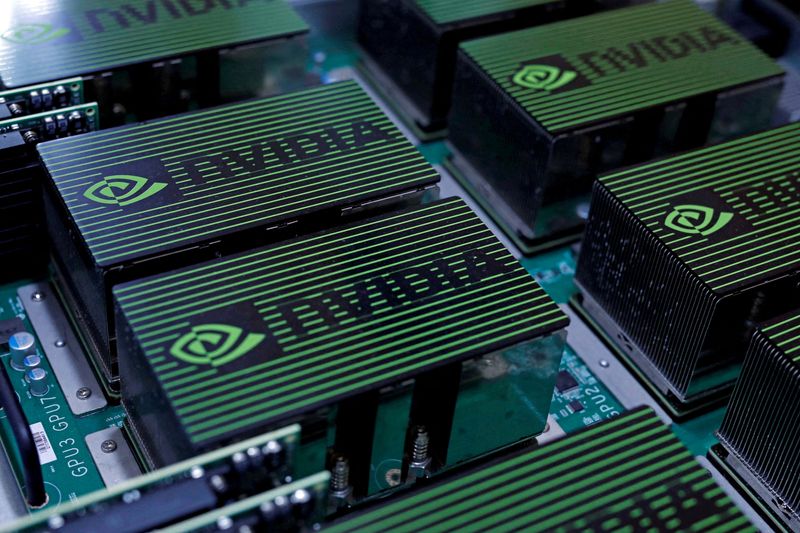By Noel Randewich
(Reuters) - U.S. chip stocks tumbled on Thursday, with the main semiconductor index down more than 3% after Nvidia (NASDAQ:NVDA) and Advanced Micro Devices (NASDAQ:AMD) said U.S. officials told them to stop exporting cutting-edge processors for artificial intelligence to China.
Nvidia's stock plummeted 11%, on track for its biggest one-day percentage drop since 2020, while smaller rival AMD's stock fell almost 6%.
As of mid-day, about $40 billion worth of Nvidia's stock market value had evaporated. The 30 companies making up the Philadelphia semiconductor index lost a combined about $100 billion worth of stock market value.
Traders exchanged over $11 billion worth of Nvidia shares, more than any other stock on Wall Street.
GRAPHIC: GRAPHIC-Nvidia's stock falls from grace (https://fingfx.thomsonreuters.com/gfx/mkt/xmpjoaoqevr/Pasted%20image%201662051521439.png)
The restricted exports to China of two of Nvidia's top computing chips for artificial intelligence - the H100 and A100 - could impact $400 million in potential sales to China in its current fiscal quarter, the company warned in a filing on Wednesday.
AMD also said U.S. officials told it to stop exporting its top artificial intelligence chip to China, but that it does not believe the new rules will have a material impact on its business.
Washington's ban signals the intensification of a crackdown on China's technological development as tensions simmer over the fate of Taiwan, where components designed by most U.S. chip firms are manufactured.
"We see an escalation in US semiconductor restrictions to China and increased volatility for the semiconductors and equipment group following NVIDIA's update," Citi analyst Atif Malik wrote in a research note.

The announcements also come as investors worry that the global chip industry may be heading for its first sales downturn since 2019, as rising interest rates and stuttering economies in the United States and Europe cut into demand for personal computers, smartphones and data center components.
The Philadelphia chip index has now lost almost 16% since mid-August. It is down about 35% in 2022, on track for its worst calendar-year performance since 2009.